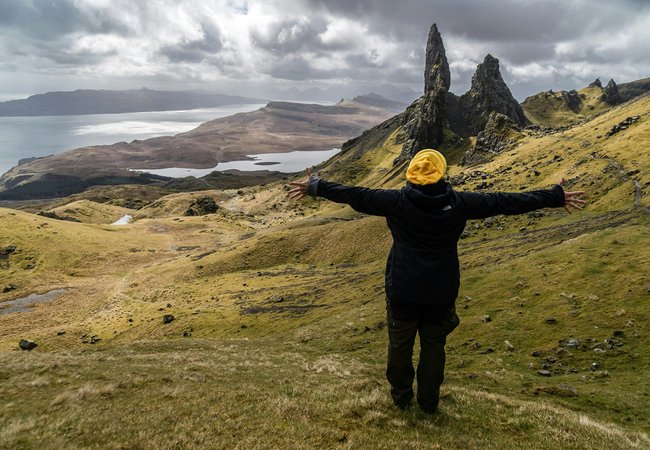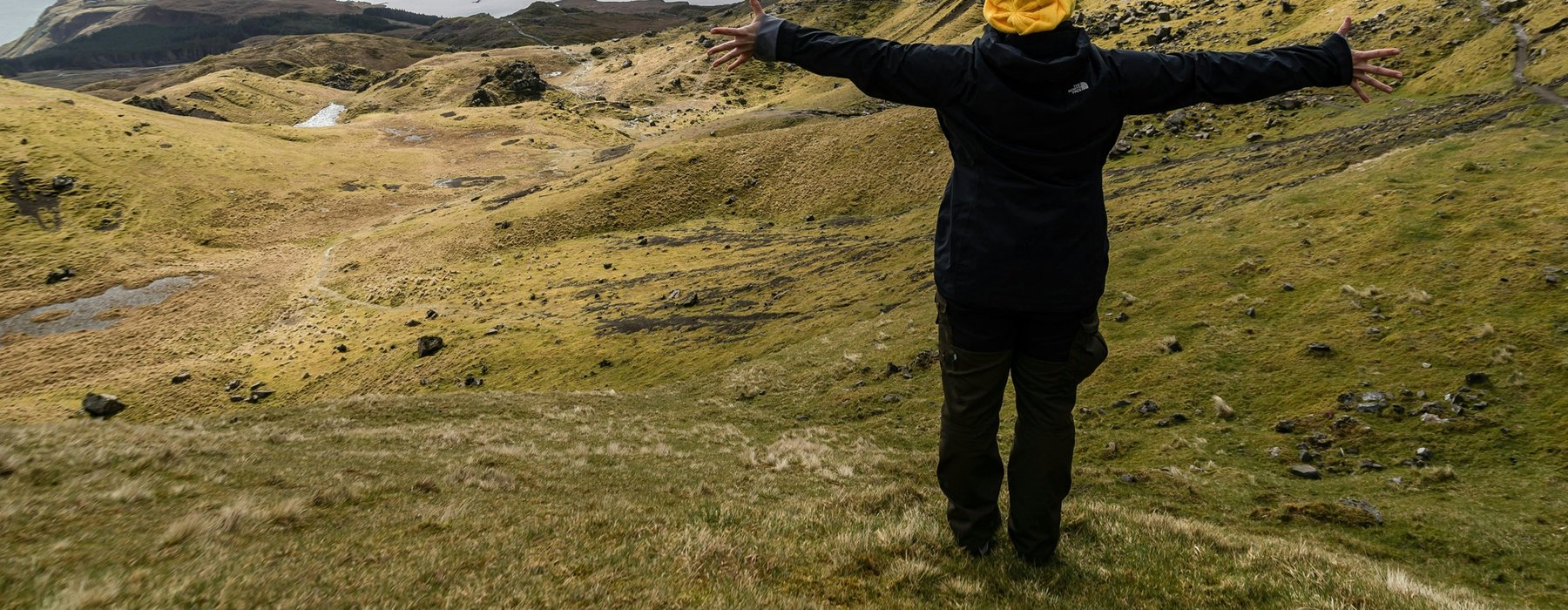Tomorrow marks six years since Scotland declared a climate emergency.
But instead of rolling up their sleeves to reduce emissions fairly in ways that benefit us all, some politicians seem more interested in questioning climate action than delivering it.
Some veer toward denial, others into the cosier sounding camp of climate delay. But left unchallenged, both risk real damage, weakening the urgency and depth of action we need.
Meanwhile, the impact of our heating world grows ever stronger. Wildfires have been raging across Scotland, from Galloway to Ullapool. Storms like Storm Éowyn — described as "once in a generation" — have brought significant destruction. These extreme weather events are becoming more frequent and intense. Shutting our eyes to the reality won’t change it.
And it’s not just here. Across the globe, droughts in East and Southern Africa are threatening millions with starvation, cyclones are devastating homes in Southern Asia, and rising sea levels are swallowing coastlines in the Pacific. As my Oxfam colleagues see every day, the climate crisis isn’t a future threat; it’s here, and it’s accelerating.
Yet we’ve seen that change is possible, not least through the transformation to renewables in Scotland’s electricity system and inspiring community-led initiatives.
But we cannot stay silent while climate action delayers stall progress, jeopardising lives. This isn’t about politics – it’s about survival, justice, and our shared future.
Scientists have spent decades shouting from the rooftops: act now, or we’ll pay the price. That bill is already being paid, and it’s not being split evenly. When disaster strikes, it’s not the wealthiest who suffer most, it’s people in poverty who are least protected and often hardest hit.
And yet, some politicians have the gas-lighting gall to claim we can’t deliver action at the speed that science demands because it’ll make people poorer or is simply unaffordable.
They claim that slowing down is the sensible thing to do. Let’s be clear: there is nothing sensible about more extreme weather, higher costs, and greater inequality. Backtracking on climate action isn’t pragmatism. It’s dangerous. And it’ll cost those with the least the most.
Concerns about costs are real: families shouldn’t be left unsupported to pay for a heat pump or electric car they can’t afford. But that’s not a reason to slow the transition; it’s a reason to do it fairly: ensuring people get the support they need.
Fair climate action protects those with the least. Cheaper, greener public transport cuts costs and carbon. Yes, some jobs will go, they already are. But the shift to clean energy is already creating secure, well-paid jobs in Scotland.
The truth is: the transition is happening. The only question is whether we make it fair or leave people and places behind while big polluters get off scot-free.
When Scotland set ambitious climate targets, all parties backed them. Why? Because the science was undeniable. It still is. We can’t afford for that cross-party consensus to crumble now just because a few politicians think there are easy votes in rolling back progress.
As the Royal Scottish Geographical Society’s compelling new report makes clear, if we delay climate action, we – and our children and grandchildren – will pay for it later, with interest.
A fair, well-funded green transition is the solution, not the problem. But to fund clean energy, public transport, and green jobs, we need investment - including significant public resources. On average, the richer you are, the more you pollute, so the fair solution is to tax wealth and the biggest polluters – particularly the very wealthiest.
Right now, some of the richest companies on the planet are making eye-watering profits while pumping out carbon and passing the costs onto the rest of us. Oil and gas giants have been making billions while communities drown and burn.
It doesn’t have to be this way. A fairer tax system could raise the money we need to enable all of us to insulate our homes and switch to clean heating, helping families to lower their energy bills for good while, yes, delivering energy security. It can improve buses and trains. It could make sure that the shift to net zero isn’t paid for by those with the least but funded by those who’ve gained the most from the industries driving the crisis.
That’s the real choice: protect profits or protect people. Keep subsidising pollution, or choose to invest in a safer, fairer future – one that benefits us all.
A modest UK Government tax of just 2% on the richest millionaires and billionaires could raise up to £24 billion annually.
But the Scottish Government is far from powerless. They could land a fair tax on pollution-spewing private jets: something the First Minister says he backs but hasn’t yet implemented. And they could also use devolved tax powers to reward businesses that reduce their environmental impact.
Crucially, Scottish Ministers can also stand up and be counted by confirming their proposed presumption against new oil and gas licences. Let’s be clear: no one is talking about turning the taps off overnight, but we shouldn’t be turning new ones on either.
With a Scottish election on the horizon, we need consistent climate leadership. There is no moral, scientific or economic justification to delay the fair climate action that most people believe will be good for Scotland.
So, to those suggesting we slow down or give up: no. We won’t. Because the stakes are too high. We won’t – we can’t – accept more delays, distractions, or dilly-dallying. We need action now.
This article originally appeared in Scotland on Sunday.


